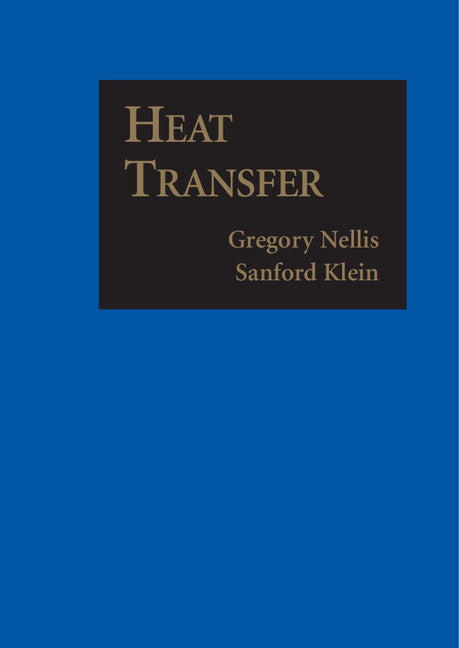Freshly Printed - allow 3 days lead
Couldn't load pickup availability
Heat Transfer
This textbook provides engineers with the capability, tools and confidence to solve real-world heat transfer problems.
Gregory Nellis (Author), Sanford Klein (Author)
9781107671379, Cambridge University Press
Paperback / softback, published 20 August 2012
1148 pages, 545 b/w illus. 45 tables
25.4 x 17.8 x 4.6 cm, 2.25 kg
Review of the hardback: '… this book significantly raises the bar for heat transfer text books. Further, the integration of theory with computational tools makes the book of high interest at the professional level. Readers are encouraged to go to the website and explore this book and the supporting materials in depth … a major contribution to education in the field of heat transfer.' Journal of Heat Transfer Engineering
This textbook provides engineers with the capability, tools and confidence to solve real-world heat transfer problems. It includes many advanced topics, such as Bessel functions, Laplace transforms, separation of variables, Duhamel's theorem and complex combination, as well as high order explicit and implicit numerical integration algorithms. These analytical and numerical solution methods are applied to topics not considered in most textbooks. Examples include heat exchangers involving fluids with varying specific heats or phase changes; heat exchangers in which axial conduction is a concern; and regenerators. Derivations of important results are presented completely, without skipping steps, which reduces student frustration and improves readability and retention. The examples are not trivial 'textbook' exercises; they are rather complex and timely real-world problems that are inherently interesting. This book integrates the computational software packages Maple, MATLAB®, FEHT and Engineering Equation Solver (EES) directly with the heat transfer material.
1. One-dimensional, steady-state conduction
2. Two-dimensional, steady-state conduction
3. Transient conduction
4. External forced convection
5. Internal forced convection
6. Natural convection
7. Boiling and condensation
8. Heat exchangers
9. Mass transfer
10. Radiation.
Subject Areas: Heat transfer processes [THN], Mechanics of fluids [TGMF], Materials science [TGM], Thermodynamics & heat [PHH], Nonlinear science [PBWR]


